2 min read
Gospel-Centered from the Start
“Let us hold unswervingly to the hope we profess, for He Who promised is faithful…Jesus Christ is the same yesterday, today, and forever.” (Hebrews...
8 min read
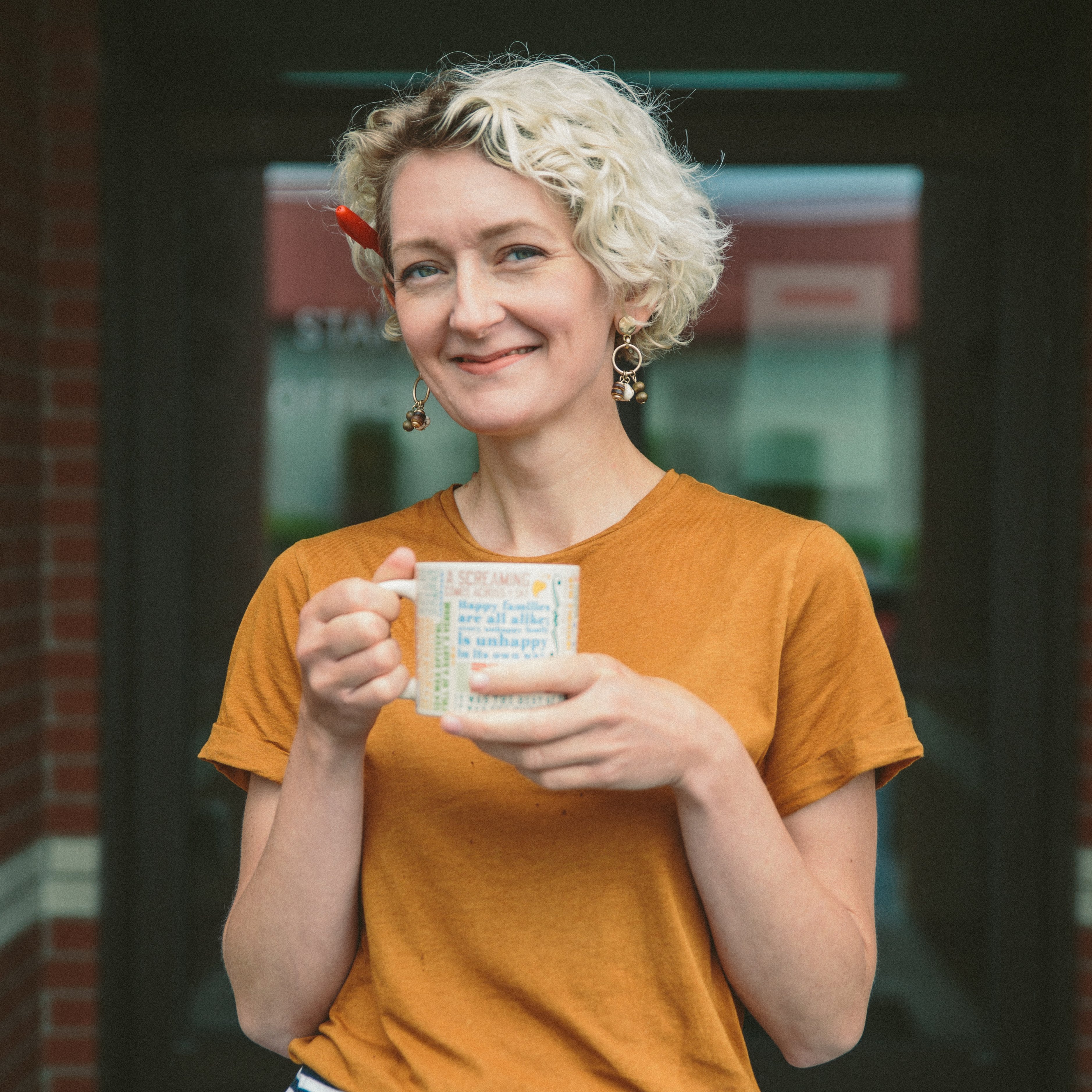 Genevieve Gromlich, former Content and Communications Manager
:
July 20, 2023
Genevieve Gromlich, former Content and Communications Manager
:
July 20, 2023
Tristan was living on a front porch. Over the course of eight years, his life had progressed from one devastation to another. “It started back when I was fifteen. I remember, I was at home watching TV when my aunt called me and told me to go outside and start walking down the street; don’t even stop to put on my shoes. She was driving down the road with her window open. She stopped and said that I should get in. I knew something was wrong.” Tristan’s aunt had to break the news to him that his father had been arrested. He was charged with crimes so sinister that he was eventually sentenced to 27 years in prison.
“My whole life revolved around chasing the next high.”
Although Tristan’s family offered everything they could to help him process what was happening, he says the remainder of his high school years were a steady plunge into an abyss of addiction. And, at 23 years old, after several months of couch surfing, he took up residence on a friend’s front porch. At this point, he knew he needed help. “My mental state was not good at all. Basically, my whole life revolved around chasing the next high. I knew that I had to get sober, that I had to change my life, but the thought of that was so terrifying because I knew I would have to give up the only thing that helped me to numb my feelings.” After multiple prior attempts, his aunt Jenny convinced him to enter UGM LIFE Recovery in Spokane.
UGM’s holistic recovery program is structured to meet the changing needs of men and women as they progress through the many stages of healing. For Tristan, it was a process of healing from trauma and addiction.
In July of 2021, Tristan entered the fully residential evaluation phase called First Steps. During this phase, not only are program staff evaluating the applicant’s readiness, but the applicant is determining whether the program is a good fit for them.
For Tristan, the time was right. In a July 2021 interview, he said the Lord had prepared his heart: "I've been praying for God to get rid of the hardness of my heart. I used to be very closed off, very stoic, never showing any emotions, never reacting to anything. Now, more recently, I'm able to be more honest with people, I'm able to really show emotions." He leapt into program with both feet.
Through trauma-informed care, classes, counseling, and a self-evaluation process, Phase 1 residents are provided the stability and direction needed to make a plan for a new life.
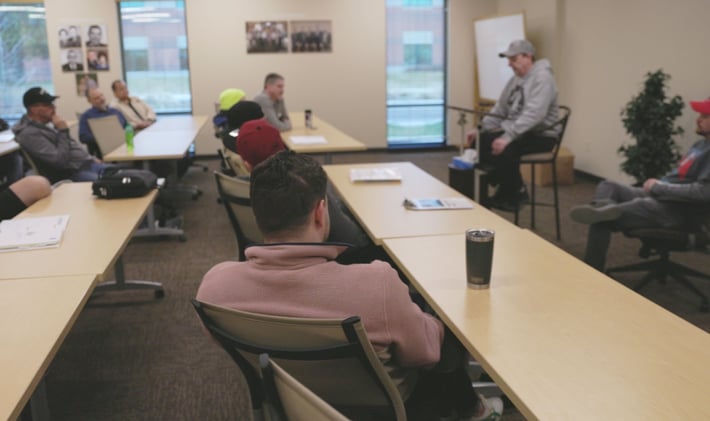
Tristan said that the self-evaluation process introduced in Phase 1 was a key part of his recovery. This is a tool, developed by Genesis Process International, in which individual participants get to discuss recent choices they’ve made with fellow programmers. It is always done within a structured setting, and only those who have presented their own “Self-Eval” in the past are permitted to engage the topic. The presenting participant might say, “On Tuesday, I chose to lie about when my addiction started.” To that, a program peer might ask, “What did you hope to gain from the lie?” Or “Did you feel more or less loved/known/safe after making that choice?” The presenter then reflects on the questions and has the freedom to answer at the depth they’re comfortable with. The goal is to reveal the underlying thoughts that lead to harmful behaviors as well as any unintended consequences.
“It’s really important to have outward eyes that can look in on the decisions that you’ve made and provide feedback.”
Tristan said, “It’s really important to have outward eyes that can look in on the decisions that you’ve made and provide feedback. I get so stuck in the lies that I believe, so having other people close to you who understand what you’re going through and understand false beliefs helps bring that to light quicker as opposed to later.”
In Phase 2, through ongoing counseling, classes, and Self-Evals, residents are encouraged to start identifying the underlying causes of their destructive behaviors. Because only when the root causes are known, can true healing begin. To do this, Tristan had to open an emotional “file” he’d carefully kept locked and hidden since he was 15. All this time, he’d felt deeply unlovable, as though God had abandoned him like his father.
Many residents admit this is one of the most difficult (yet beneficial) phases of all. As Tristan revealed his inner wounds, old emotions resurfaced—emotions he had learned to numb with substances and other addictions. For many, the risk of relapse is highest at this point in program. Tristan said the Genesis Process helped him immensely. “Genesis helped a lot with combatting the false beliefs and basically figuring out how to look at the mistakes and lies I’ve believed all my life and being able to challenge my beliefs and test them. You take the perceived lie and evaluate it against scripture and who you know God to be, and a lot of the time, the lie you’ve believed is not true.”
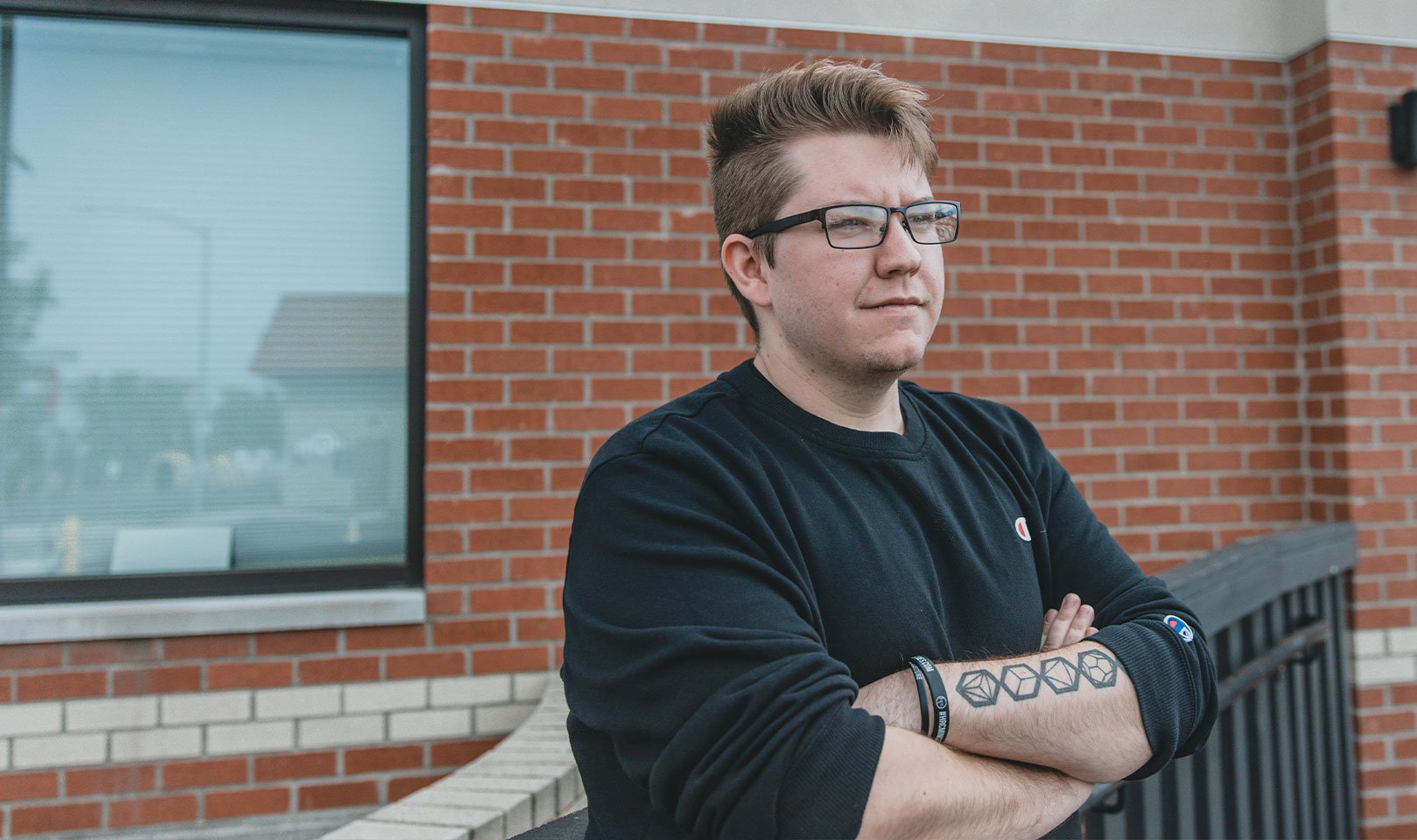
He also learned that being transparent with his counselor and his program peers was the only way forward if he was going to heal from his childhood trauma without relapsing. He learned that it was safe to feel hard emotions, that they would pass even when he didn’t numb them, and that he was not alone in his struggles.
“It's essentially a cycle, and that's why I'm here: to break that cycle.”
The work in Phase 2 helped him see that his father’s crimes were part of a toxic cycle that Tristan himself was at risk for repeating. In a January 2022 interview, he said, "I've realized that through the grace of God, it was [his dad’s] habitual sin, over decades, that led him to stray further and further from God, and that all stemmed from trauma that he hadn't dealt with, so it's essentially a cycle, and that's why I'm here: to break that cycle."
Tristan had never had a normal adulthood. By Phase 3, he was 25 years old and had no idea what he wanted to do with his life. “I’d never really lived on my own or paid my own bills, I didn’t have a college degree, and didn’t have any real work experience to speak of.”
Through ongoing counseling and classwork, Phase 3 has two main goals: prepare for life outside of program and create a relapse prevention plan.
One of the classes Tristan loved was Work Net. “A lot of Work Net was identifying what I wanted to do for the rest of my life. That helped a lot as far as being able to brainstorm, ‘Hey what would I be good at?’ One thing they do is they give you a list of companies locally that have partnered with UGM to help people transition back into the workforce and they have you choose three of those and have you do interviews with each of them.”
As Tristan narrowed down on what he wanted to do for his Phase 4 business practicum, he also created a relapse prevention plan. In addition to building a circle of support/people who would hold him accountable, he was encouraged to identify his personal relapse triggers. When residents move out of UGM facilities in Phase 5, new opportunities abound to fall back into old coping mechanisms. It becomes imperative that they know what kinds of events, emotions, or other influences are likely to trigger a relapse. Using the F.A.S.T.E.R scale, they build a plan for what to do and who to call when relapse starts to feel like an option.
“Now I feel confident with being able to move forward into my problems head on and not fearing failure.”
Ending Phase 3, Tristan was ready to move forward into more independence. He said, “Now I feel confident with being able to move forward into my problems head on and not fearing failure… taking steps forward instead of giving up. Now I look at those mishaps as learning opportunities.”
Not all UGM residents have poor work histories, but many do. Even those who have a long history of working hard will be reentering the workplace from a new perspective; therefore, Phase 4 is all about practice and experimentation in the real world. While still living in the safe, healing community at UGM, residents are provided a 240-hour business practicum at a local business of their choice (chosen from a list of UGM partners). They're not only experimenting with new career options; they're practicing new behaviors in a work setting.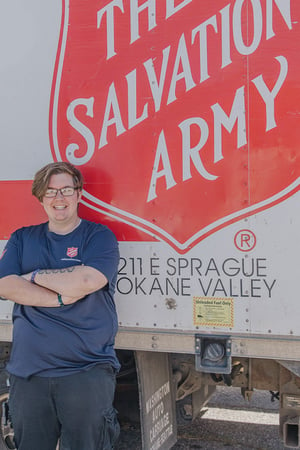 Tristan said it best: “In work therapy and your business practicum, you’re working through work-based fears and learning how to exercise your boundaries in the workplace.” He chose a business practicum at Salvation Army where he served in the food bank. “I learned to be more social there. It wasn’t easy, and sometimes I had to use new boundaries I’d learned to basically say to people, ‘If you’re going to act that way, I’m going to have to show you to the door.’ It was definitely something I wasn’t very good at at first, but I got better. It was really a good place and a good community for me to learn in.”
Tristan said it best: “In work therapy and your business practicum, you’re working through work-based fears and learning how to exercise your boundaries in the workplace.” He chose a business practicum at Salvation Army where he served in the food bank. “I learned to be more social there. It wasn’t easy, and sometimes I had to use new boundaries I’d learned to basically say to people, ‘If you’re going to act that way, I’m going to have to show you to the door.’ It was definitely something I wasn’t very good at at first, but I got better. It was really a good place and a good community for me to learn in.”
In this phase, most of the program coursework is wrapped up. Residents work three 8-hour days at their practicums, then they have counseling on one of their days off and a 6-hour chore to round out the week. By the end of the phase, individuals are largely prepared to reenter society as contributing members, free of addiction, but surrounded by support.
In Phase 5, residents take the necessary steps to secure employment and move into long-term or transitional housing. Many residents move into UGM Aftercare Housing which requires a commitment to ongoing sobriety, regular check-ins, and weekly group meetings. This is what Tristan chose. He also secured a full-time, permanent job at the same place that hosted his business practicum: Salvation Army. Today, he’s their vehicle coordinator, a job that requires high autonomy.
“I want to be the man that God wants me to be and I realize now that the only way I can do that is through community, with other people, and with God's help.”
This phase has a variable length because of the varying needs of each resident. Some might require counseling for a few more months, others may need help connecting to further support services or medical care, many need advice and support as new relationships (professional and personal) come into the picture. Tristan has leaned into the social network of staff and program peers who have become friends. He said, "I want to be the man that God wants me to be and I realize now that the only way I can do that is through community, with other people, and with God's help."
Tristan completed LIFE Recovery in the spring of 2023 and was honored, along with 21 other men and women in the 2023 LIFE Recovery Commencement in June.
Statistically, the likelihood of achieving lifelong sobriety only reaches 85% after 5 years of continual sobriety. LIFE Recovery is approximately two years long, so we offer an Aftercare program that covers the gap to that five-year benchmark.
Only those living in UGM Aftercare Housing are required to participate in the Aftercare program, but all who finish Recovery are encouraged to join. It includes regular check-ins, weekly group meetings, volunteer opportunities (a great way to stay connected and see how far you've come!), and assistance with various life issues. 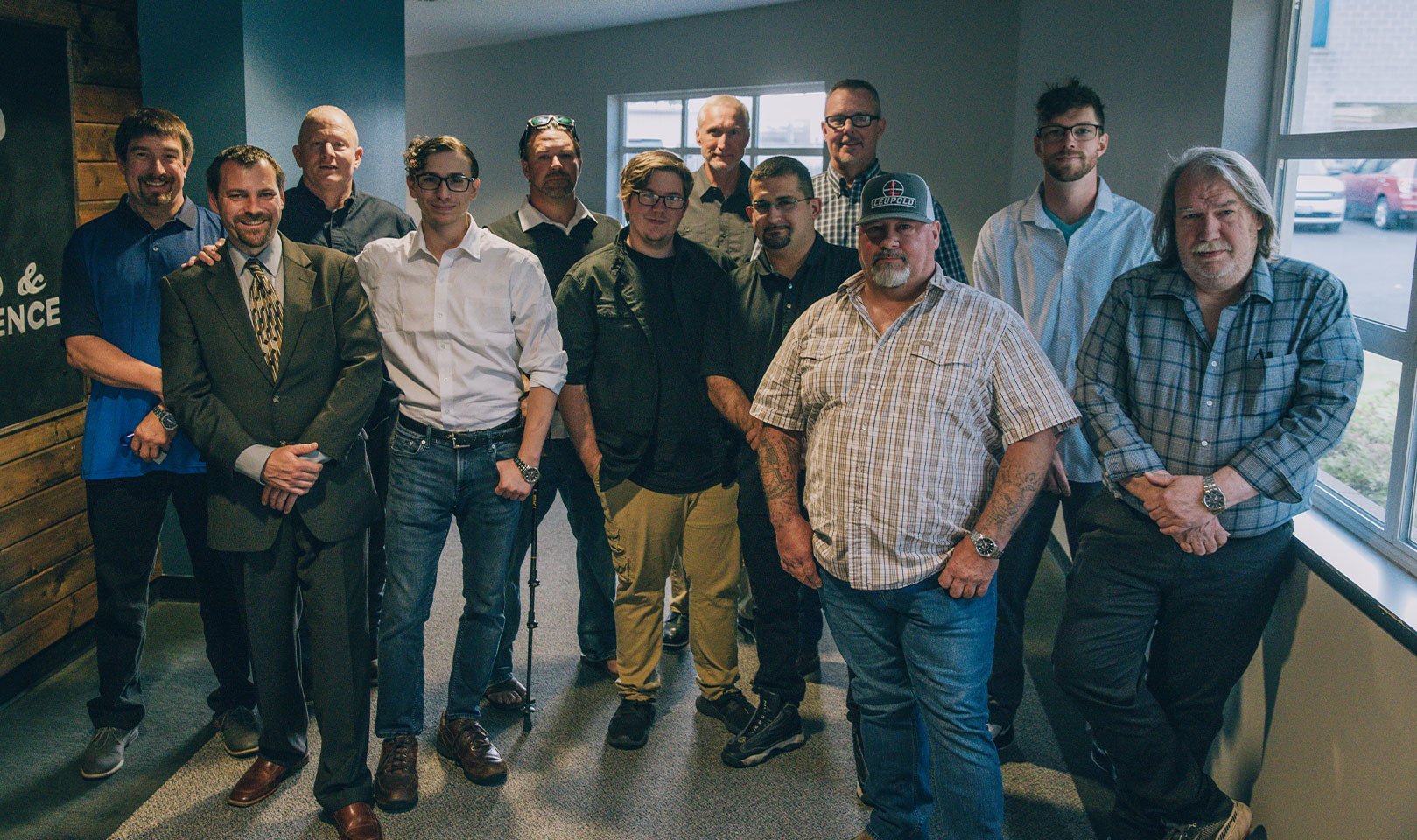
Tristan has been happy with his choice to live at the UGM Aftercare Housing. “On Tuesdays, we have meetings together and that boils down to someone makes a meal and we sit around the table like a family, eat a meal, and talk. That’s very helpful. I know that I’m living next to other people who completely understand everything I’m going through and so those are people I feel comfortable reaching out to if I struggle. And then just the aspect of individualism—being able to live like an adult, to be able to pay rent, pay bills, have a job, do what I want to do all while exercising the concepts I’ve learned in program in a still safe place, a high barrier place where I’m not exposed to substance abuse.”
“He will provide a way out. He will transform you into someone you never knew you could be.”
Looking at Tristan today, we hardly recognize the traumatized young man who came to our doors desperate to exit survival mode. He says to anyone seeking help today, “I don’t think we are ever truly alone; God will pursue you, regardless. The choice is whether or not you are going to let Him pursue you and listen to Him speak. He will provide a way out. He will transform you into someone you never knew you could be.”

2 min read
“Let us hold unswervingly to the hope we profess, for He Who promised is faithful…Jesus Christ is the same yesterday, today, and forever.” (Hebrews...

9 min read
To celebrate 75 years of serving the Inland Northwest, we are spending the year remembering our history and the faithfulness that built us and...

2 min read
In 2026, Union Gospel Mission Inland Northwest is approaching our 75th Anniversary! This is a milestone that invites gratitude and reflection, and...
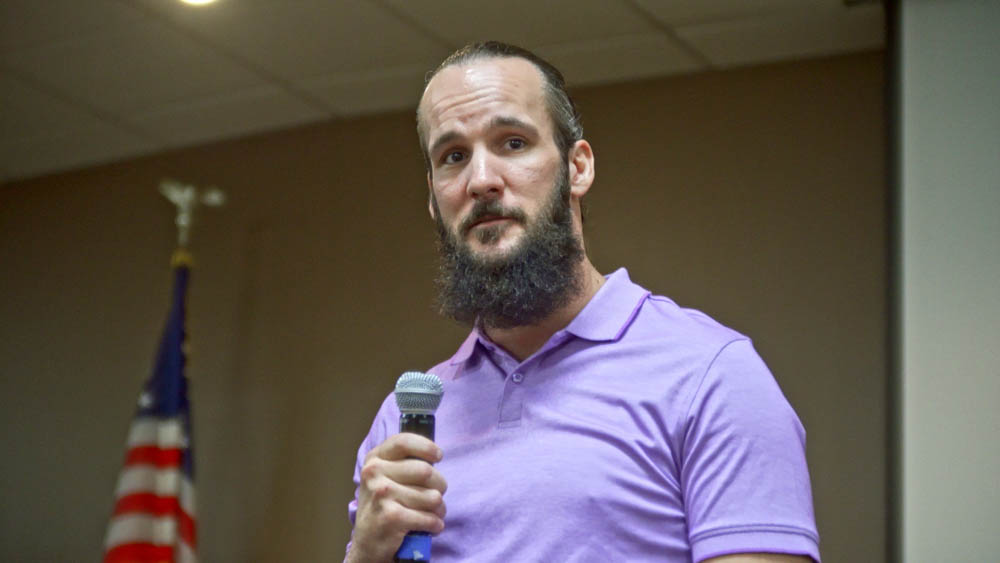
Author’s Note: From my earliest days at UGM, I have wanted to follow someone all the way through the LIFE Recovery Program, interviewing him or her...
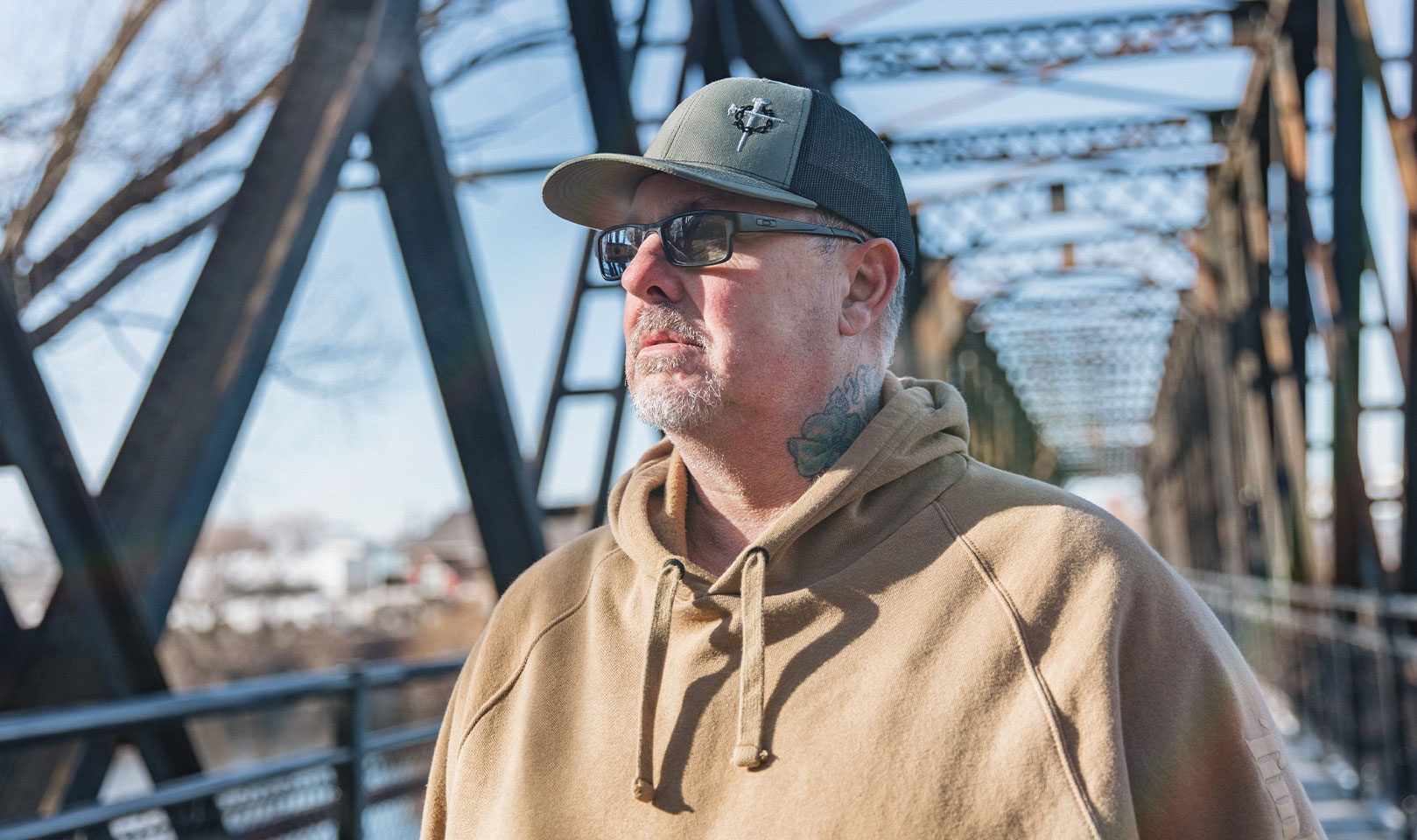
At eight years old, Pat’s mom would share a beer with him. “Instantly, I was addicted.” At thirteen, drug and alcohol abuse became a constant. “My...
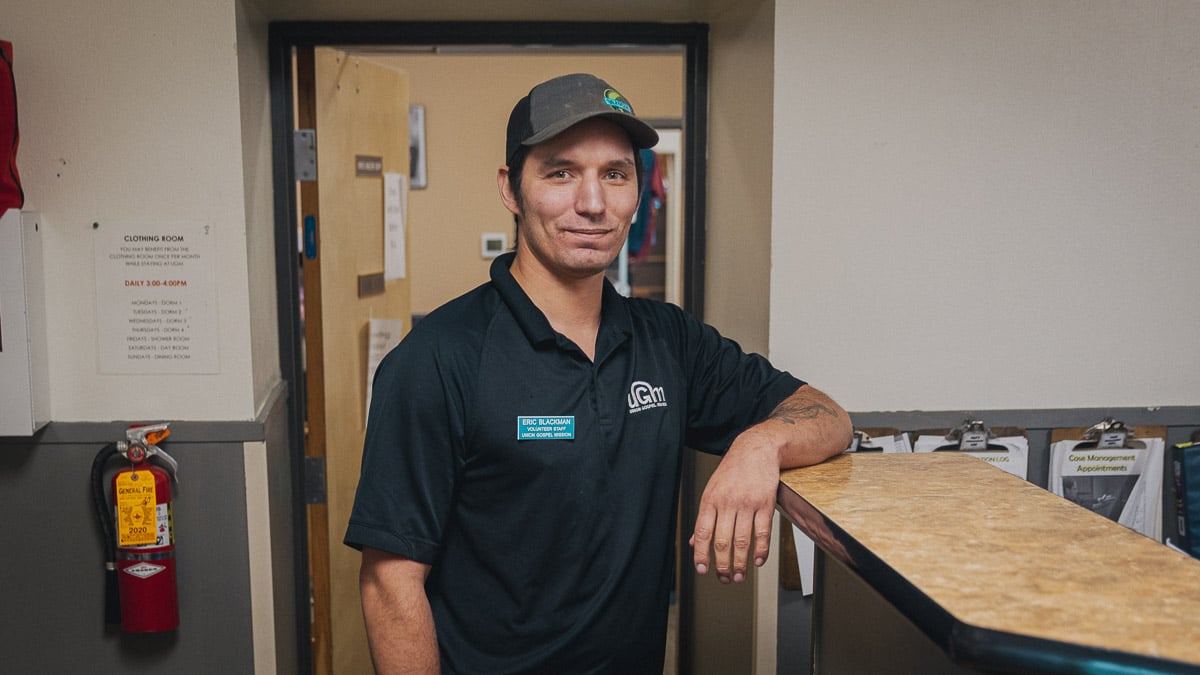
Eric Blackman was trying to live the party life. Alcohol, drugs and carefree days shaped his mid-twenties through early-thirties.